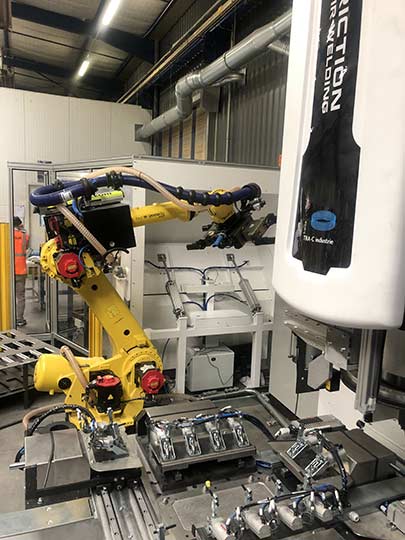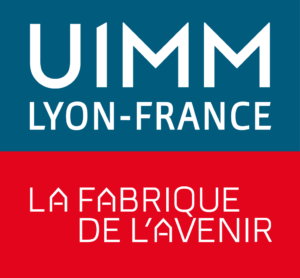Automatic industrial machines play an essential role in optimizing industrial processes. Designed to operate with little or no human intervention, they improve productivity and precision.
In industry, these machines fall into several categories, depending on their level of flexibility and programmability. Some are dedicated to repetitive tasks, while others adapt to changing production needs.
Industrial automation uses a wide range of technologies to facilitate the execution of tasks. While in many sectors, decision-making and human labor are still necessary, automation can prove invaluable to companies.
But what are the advantages of automated industrial machines? What are the different machine categories? In this article, TRA-C industrie shares with you the applications and selection criteria for different machines to optimize your processes!

A brief history of automatic machines in industry
Automatic industrial machines came into being during the Industrial Revolution, with the advent of steam-powered mechanisms. These innovations marked a decisive step in replacing manual labor with mechanized processes.
At the beginning of the XXᵉ century, electrification and the first assembly lines made it possible to automate production lines. Industries such as the automotive industry then adopted these technologies for large-scale production.
The 1970s saw the integration of electronics and digital systems. Programmable logic controllers (PLCs) revolutionized automation by introducing greater flexibility and precision.
Today, industry is moving towards intelligent machines integrating AI, industrial robotics and IoT. These technologies are shaping the future, enabling ever more personalized and connected production!
The advantages of automatic industrial machines
Machine automation brings major benefits to industries by improving productivity, precision and profitability. Key benefits include:
- Productivity gains: automated machines run continuously. This reduces downtime and speeds up production;
- Error reduction: thanks to their precision, they also minimize defects and guarantee better quality of finished products;
- Cost optimization: they also reduce labor requirements and energy consumption, which improves profitability;
- Increased safety: by replacing workers in dangerous tasks, machines reduce the risk of accidents;
- Flexibility and adaptation: programmable machines adjust to production needs, making industry more responsive;
- Durability and optimized maintenance: modern technologies anticipate breakdowns and optimize the use of resources, prolonging the life of equipment;
- Traceability and control: finally, automated systems record data in real time. This makes it easier to monitor and improve processes.

Stationary automated machines, optimized for mass production
Stationary automatic machines are designed to perform a specific task repeatedly. Present on production lines, they guarantee high output and constant precision.
This equipment is generally rigid and not very adaptable, but its robustness enables large-scale production. Therefore, they can be found in the steel, food and automotive industry.
Common automatic industrial machines include hydraulic presses, bottling machines and automated conveyors. Their operation is based on precise mechanisms that require little human intervention.
Although highly efficient, these machines lack flexibility and require heavy investment. Nevertheless, they remain essential in industries where standardization and speed are priorities!


Flexible industrial machines for a wide range of needs
Flexible automatic machines, on the other hand, can be adapted to different tasks without major modification. They offer great versatility, enabling industries to meet a wide range of changing needs.
Unlike stationary machines, they can be reprogrammed or reconfigured to produce different types of part. They are used in machining, assembly and industrial logistics…
These include CNC machining centers, modular industrial robots and adjustable production lines. Their flexibility optimizes production changeovers and reduces costs.
Thanks to their adaptability, these machines improve companies’ responsiveness to market demands. However, they require programming and maintenance skills to exploit their full potential.
Programmable automation machines: between precision and autonomy
Programmable automatic machines are driven by software and algorithms, enabling them to perform complex tasks. They offer enhanced precision and can be reconfigured according to production needs.
These machines use numerical controls or programmable logic controllers (PLCs) to adjust their parameters in real time. They are widely used in demanding sectors such as aeronautics, electronics and robotics.
Examples include programmable logic controllers (PLCs), robotic arms and laser cutting machines. Their intelligence enables them to interact with other systems and improve process efficiency.
Thanks to the integration of artificial intelligence and Big Data, these machines are becoming increasingly autonomous. They thus represent the future of industry, combining flexibility, performance and optimized decision-making!


Comparison and selection criteria for automatic industrial machines
The choice of an automatic industrial machine depends on production needs, budget and the level of flexibility required. Here are the main criteria to consider:
- Type of production: a fixed machine is suitable for mass production runs, while a flexible or programmable machine is appropriate for varied production runs;
- Level of automation: stationary machines require little control, while programmable machines offer advanced process management;
- Investment and costs: fixed machines are often cheaper to buy, but flexible and programmable machines offer a better return on investment;
- Maintenance and operation: programmable machines require more advanced technical skills for parameter setting and maintenance;
- Scalability and adaptability: flexible, programmable machines make it easy to keep pace with technological developments and changing needs.
How can automated machines be integrated into industry?
Integrating special-purpose machines or automatic in industry requires precise planning to align equipment with existing processes. This includes analyzing production flows and identifying areas to be automated.
These machines are designed to work in synergy with other systems, such as management software and robots. This interconnection promotes real-time communication and optimizes task coordination!
Predictive maintenance also plays a key role in successful integration. By anticipating breakdowns using the data they collect, companies can reduce downtime and extend equipment life.
Finally, appropriate team training is essential to ensure a smooth transition. It enables operators and technicians to maximize machine performance while adapting to new technologies.

Subcontract your projects to a specialist in automatic industrial machines
Automation can bring many benefits to your business, as long as you ensure a smooth transition for your team. Consult an automation expert to optimize its integration and maximize its benefits.
Expert in the design, installation, integration and maintenance of automatic industrial machines, TRA-C industrie is certified to the strictest international standards. We guarantee high-performance equipment and optimized installation.
The choice of an automated machine depends on your sector and your specific needs. Our experts will guide you in selecting the most appropriate solution, sometimes combining several types of automation to optimize your office or warehouse processes.
The efficiency of your machines also depends on the skills of your teams. That’s why TRA-C industrie offers comprehensive training courses tailored to your needs. Our experts will work with you to ensure that your staff are up-to-date with the use and maintenance of automated equipment.









